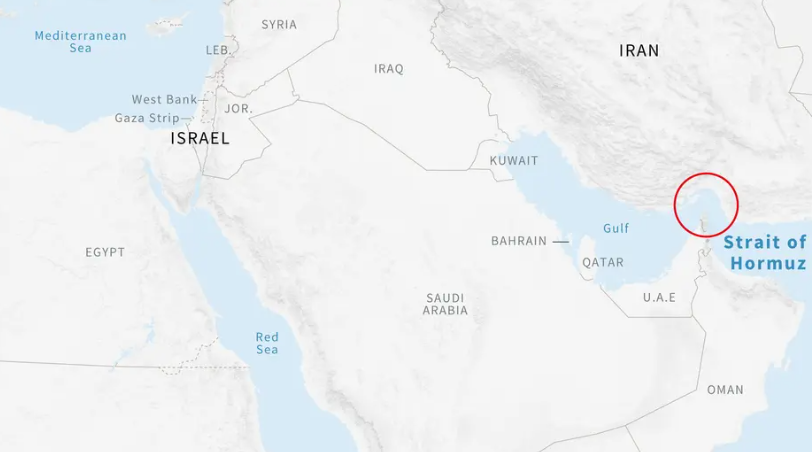Strait of Hormuz: an energy crisis would hit Asia the hardest
An Iranian blockade of the world's main maritime transit point for oil and gas would have severe repercussions in Asia, especially for China, India, Japan, and South Korea. As crude oil prices rise, many doubt that Iran can carry out its threats because they would harm China, risking further isolating the country.
Tokyo (AsiaNews) – Closing the Strait of Hormuz, which Iran has threatened to do following US airstrikes against its nuclear facilities, would especially harm Asian economies.
About 25 per cent of the world's oil and 33 per cent of its liquefied natural gas (LNG), largely from Qatar, pass through the Strait every day, making it an ideal choke point.
As a fundamental hub for global energy supplies, the strait is “the artery through which the world’s energy flows,” said recently Shell CEO Wael Sawan.
In 2024, tankers carried about 16.5 million barrels of oil per day from Saudi Arabia, Iraq, Kuwait, the United Arab Emirates, and Iran.
Although Iran’s Supreme National Security Council has yet to make a final decision on the issue, the price of Brent has already risen by more than 5 per cent from a week ago, settling at around US$ 80 a barrel.
About 80 per cent of the crude oil that passes through the Strait is headed to Asia, especially China and India, representing about 40 per cent of total imports.
This is why many doubt that Iran can follow through with its threats, since any closure would especially harm China. However, despite its support for the Islamic Republic, China does not want to intervene in the conflict between Israel and Iran.
Fu Cong, China's permanent representative to the UN, spoke at the UN Security Council Emergency Meeting, where he slammed the attacks against the nuclear plants of Fordo, Natanz and Isfahan.
“The actions of the United States seriously violate the purposes and principles of the UN Charter and international law, as well as Iran's sovereignty, security, and territorial integrity. They have exacerbated tensions in the Middle East and dealt a heavy blow to the international nuclear non-proliferation regime,” reads a summary of Fu’s statement. “The international community must uphold justice and make concrete efforts to cool down the situation and restore peace and stability,” it goes on to say.
The ambassador urged the parties to find a diplomatic solution and reach a ceasefire.
According to data collected by the consultancy firm Rystad Energy, crude oil imported by Japan and South Korea, about 24 per cent of their total imports, also goes through the Strait.
In 2024, 69 per cent of crude oil going through the Strait went to China, India, Japan and South Korea. But Singapore, Taiwan, Thailand, Malaysia, Pakistan, and Vietnam are also at risk of supply problems.
Several commentators have pointed out that, although the main exporting countries are the Gulf monarchies (which from the beginning have indicated their preference for a negotiate resolution rather than open war with Iran), about 90 per cent of Iranian oil is bought by China and a third of the crude oil it buys passes through the Strait.
Chinese economists have tried to downplay what losses China might face, should supplies be blocked, claiming that it has renewable sources to rely on, domestic reserves and possibly turn to Russia. But not everyone agrees.
As Bloomberg reported, Michelle Lam, Greater China economist at Société Générale SA, estimates that China’s GDP could shrink by 0.4 per cent to 1.2 per cent if oil prices rise by 40 per cent to US$ 100 a barrel.
For Iran, shutting down the Strait “could exacerbate its isolation further”, writes Wang Jin, an associate professor and assistant director, Institute of Middle East Studies (IMES), Northwest University of China.
"Closing the Strait would escalate Iran's military confrontation because the waterway is not only Iran's vital energy export route, but also critical to the national security of Saudi Arabia, the UAE, Qatar, Oman, Kuwait, Bahrain, and even Iraq's oil exports. If Iran launches a large-scale attack prematurely, it will further isolate itself diplomatically”.







.png)










